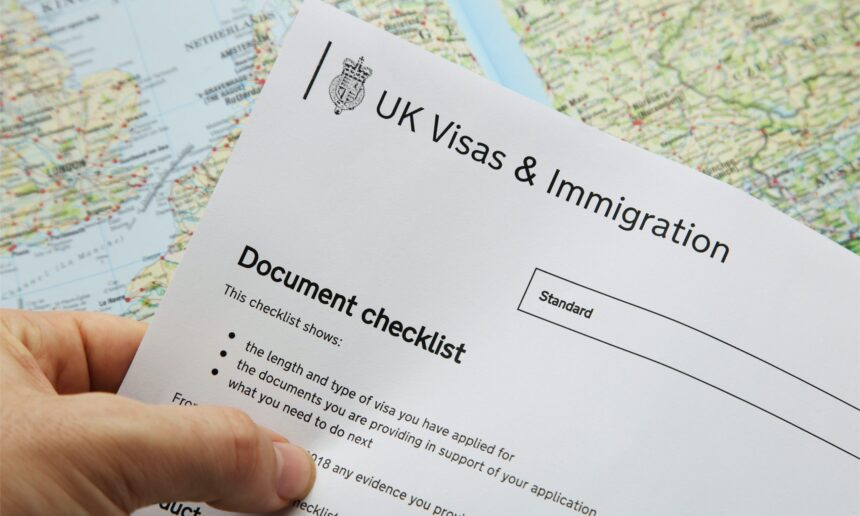Applying for a sponsor licence in the UK is a crucial step for any employer looking to hire foreign workers. This licence allows businesses to sponsor non-UK nationals under the Skilled Worker Visa (formerly Tier 2) and other work visa categories. The process can seem complex and daunting, but with the right preparation and understanding, it can be navigated successfully. In this article, we will break down the steps involved in obtaining a sponsor licence UK, discuss the requirements, and offer helpful tips to ensure your application goes smoothly.
What is a Sponsor Licence?
A sponsor licence is an approval granted by the UK Home Office that allows UK employers to sponsor workers from outside the UK for certain types of visas. It is an essential requirement for businesses seeking to employ workers from abroad, particularly in sectors with skills shortages. Without this licence, employers cannot hire foreign nationals under the various visa routes, such as the Skilled Worker Visa, Intra-Company Transfer (ICT) Visa, or Temporary Worker Visa.
Why Do You Need a Sponsor Licence?
The UK government introduced a sponsorship system to regulate the employment of non-UK workers. As an employer, having a sponsor licence gives you the ability to bring skilled workers from overseas into your business. This can be particularly useful in industries where there is a gap in local talent, or if you are looking to attract top talent from a global pool.
Additionally, having a sponsor licence ensures that you comply with UK immigration laws, helping you avoid penalties for employing illegal workers. It also demonstrates your commitment to meeting the UK’s strict immigration requirements and adhering to good employment practices.
Step 1: Determine Eligibility for a Sponsor Licence
Before applying, you need to assess whether your company is eligible to apply for a sponsor licence. The Home Office has specific requirements, and if your company fails to meet them, your application may be rejected. Here are some key eligibility criteria to keep in mind:
- Business Legitimacy: Your company must be legally established in the UK and have a legitimate business purpose. This means you must be able to show that your business is genuine and actively operating.
- No Unpaid Criminal Convictions: The company or its directors should not have any serious criminal convictions. A clean record is essential for the application process.
- Operational Address: Your business should have a physical address in the UK, which must be verified during the application process.
- Recruitment System: You need to demonstrate that you have a reliable recruitment system in place to check that the workers you employ are eligible to work in the UK and that they meet the requirements of their visa.
- Compliance History: Your business must have a history of compliance with UK employment and immigration laws. If you’ve had previous sponsorship issues or been penalized for employing illegal workers, this may affect your application.
- No History of Violations: Ensure that your business has no history of breaching immigration laws or failed compliance inspections. If your company or key personnel have been subject to enforcement actions, the application process may be more complicated.
Step 2: Choose the Type of Sponsor Licence You Need
There are different types of sponsor license depending on the type of work or worker you want to sponsor. The most common types of sponsor licences are:
- Skilled Worker Licence: For businesses wishing to sponsor workers who will fill skilled roles, typically at RQF Level 3 (A-level) or above.
- Temporary Worker Licence: For employers looking to hire workers for short-term roles or on a temporary basis. This could include roles under the Tier 5 visa category, such as those in creative, charity, or religious sectors.
- Intra-Company Transfer Licence: If you are transferring workers from a foreign branch or affiliate, you will need this type of sponsor licence.
Each type of licence will have different requirements and associated responsibilities, so it is important to select the right one for your business needs.
Step 3: Gather the Required Documents
When applying for a sponsor licence, you will need to provide several documents to support your application. These documents demonstrate that your business is legitimate, complies with the rules, and has the necessary systems in place. Commonly required documents include:
- Proof of Business Legitimacy: Company registration documents (e.g., Certificate of Incorporation, VAT registration) and evidence that the business is active and operational.
- Evidence of a UK Operating Address: A utility bill, lease agreement, or other formal documentation showing the physical location of your business.
- Compliance Documentation: Policies on your recruitment and HR processes, which demonstrate how you ensure workers meet the legal requirements for employment in the UK.
- Identification for Key Personnel: The Home Office will ask for details of key personnel in the company, such as the directors, HR managers, and other individuals responsible for compliance. You will need to provide copies of identification and background checks for these individuals.
Step 4: Submit Your Application
Once you have prepared all the necessary documents, you can submit your application to the Home Office. The application is completed online through the UK government’s official website, and you will need to pay the required application fee. The cost of applying for a sponsor licence can vary depending on the size of your business and the type of licence you are applying for.
The Home Office will process your application, and it can take anywhere from several weeks to a few months for a decision to be made. During this time, the Home Office may request additional information or clarification, so it’s important to ensure your application is complete and accurate to avoid delays.
Step 5: Prepare for a Compliance Visit
After submitting your application, the Home Office may conduct a compliance visit to your business. This visit is to ensure that your company meets the necessary requirements for holding a sponsor licence. The compliance officer will typically check that:
- You are operating a genuine business.
- You have appropriate record-keeping systems for tracking sponsored employees.
- Your HR systems can ensure that workers meet visa requirements.
It is important to ensure that your business is fully prepared for this visit. Having proper documentation, clear records, and processes in place can help smooth the compliance check.
Step 6: Receiving the Sponsor Licence
If your application is successful, you will receive your sponsor licence. At this point, you can start hiring foreign workers. The licence will be valid for four years, at which point you will need to renew it. Keep in mind that having a sponsor licence comes with ongoing responsibilities. As a sponsor, you are required to:
- Monitor the immigration status of your sponsored employees.
- Report any changes in their circumstances to the Home Office.
- Ensure that workers are adhering to their visa conditions.
Fiance Visa UK
For employers who are planning to sponsor foreign workers in the UK, it is also important to understand other visa routes, such as the fiancé visa. The fiance visa UK allows a non-UK national to come to the UK to marry or enter into a civil partnership with a British citizen or permanent resident. While this visa is not directly related to sponsorship for employment, understanding its eligibility criteria can be valuable for employees or potential candidates. Applicants for the fiancé visa must prove their relationship, meet certain financial requirements, and plan to marry within six months of arriving in the UK. Once the couple marries, the non-UK national can apply for further leave to remain in the UK under family immigration rules.
Conclusion
Successfully applying for a sponsor licence in the UK is a process that requires careful planning, documentation, and adherence to immigration regulations. By understanding the requirements, gathering the necessary documents, and maintaining compliance with the rules, you can ensure that your business is ready to sponsor international talent. The ability to bring skilled workers into your company can be a significant advantage in today’s global economy, so it is worth investing the time and effort to secure a sponsor licence.

